19 Jun2020
By Jerrica Thurman
 AACTE celebrates Juneteeth in honor of African American history and closed the National Office today. On June 19, 1865, the emancipation of Black slaves was realized when Union troops arrived in Galveston Bay, Texas, to enforce the 1863 Emancipation Proclamation for these citizens. The newly freed people called this day “Juneteeth.” Prior to this time, Confederate-controlled states refused to free slaves so an executive decree was issued and enacted by Union military.
AACTE celebrates Juneteeth in honor of African American history and closed the National Office today. On June 19, 1865, the emancipation of Black slaves was realized when Union troops arrived in Galveston Bay, Texas, to enforce the 1863 Emancipation Proclamation for these citizens. The newly freed people called this day “Juneteeth.” Prior to this time, Confederate-controlled states refused to free slaves so an executive decree was issued and enacted by Union military.
The AACTE National Office Staff took time to discuss and reflect on the importance of Juneteeth during a recent team meeting. Staff shared stories as well as resources to help others learn about this historical event. Having been enriched and enlightened, staff chose to share with the AACTE community key points and resources that stemmed from the discussion to help promote the importance of this monumental occasion in our nation. The following includes excerpts of the staff participants’ statements. Here’s what they had to say:
“I think it’s important that we acknowledge this holiday and take time to reflect on its meaning,” said Lynn M. Gangone, AACTE president and CEO. “There are 20 states that honor this holiday. It is a celebration of the end of slavery.”
18 Jun2020
By Ji Soo Song
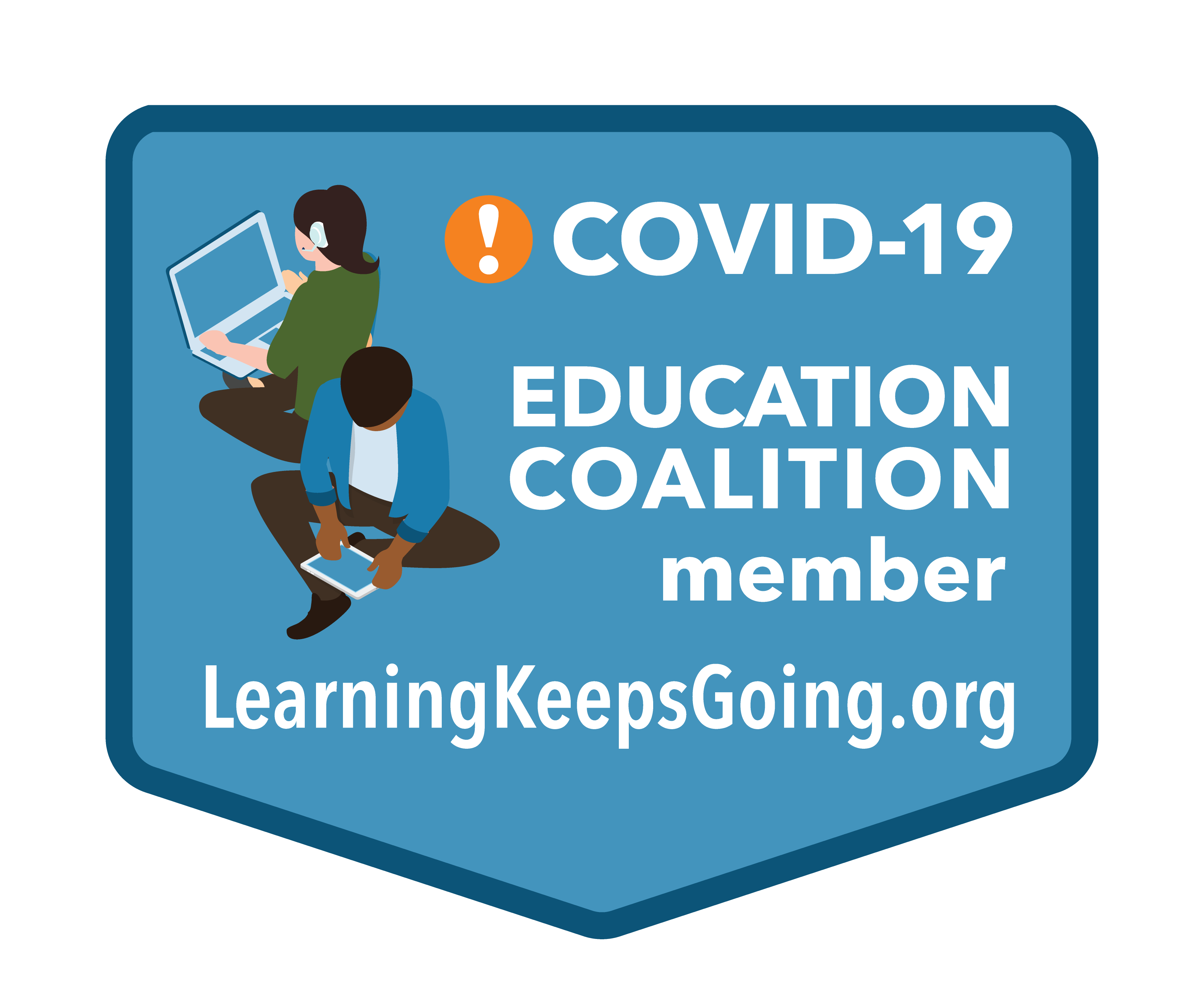 The effects of COVID-19 on students and families require district leaders to collaborate with local stakeholders — including administrators, classroom teachers, school support staff, parents, and students — to plan strategic actions that allow digital learning to effectively and equitably continue into the summer and beyond.
The effects of COVID-19 on students and families require district leaders to collaborate with local stakeholders — including administrators, classroom teachers, school support staff, parents, and students — to plan strategic actions that allow digital learning to effectively and equitably continue into the summer and beyond.
The International Society for Technology in Education (ISTE), Turnaround for Children, the National Center for Learning Disabilities (NCLD), the Future of Privacy Forum (FPF), and the New Hampshire Society for Technology in Education (NHSTE) — who are members of the broader COVID-19 Education Coalition — provide three key considerations that districts must keep in mind as they build immediate and long-term plans: equitable infrastructure, active digital learning content, and educator capacity building.
View this new resource: Providing Effective and Equitable Digital Learning for all Students: Key Considerations for Districts.
18 Jun2020
By Chris Godwin
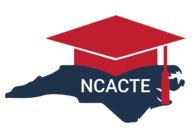 The Executive Board of NCACTE grieves with the nation and joins in solidarity with our black brothers and sisters during this tragic period in our nation’s history. Systemic racism stole the lives of George Floyd, Rayshard Brooks, Ahmaud Arbery, Breonna Taylor, Eric Garner, Trayvon Martin, Michael Brown, and many more that are not named here. As teacher educators, we believe Black Lives Matter and we see the impact of racism in both our K-12 schools, colleges and universities. As a body, we agree students in our schools need and deserve antiracist teachers as well as teachers who are mirrors for themselves. This statement is our initial commitment to action, which will begin months and years of work ahead. We are also committed to finding the right people to lead this work for and with us.
The Executive Board of NCACTE grieves with the nation and joins in solidarity with our black brothers and sisters during this tragic period in our nation’s history. Systemic racism stole the lives of George Floyd, Rayshard Brooks, Ahmaud Arbery, Breonna Taylor, Eric Garner, Trayvon Martin, Michael Brown, and many more that are not named here. As teacher educators, we believe Black Lives Matter and we see the impact of racism in both our K-12 schools, colleges and universities. As a body, we agree students in our schools need and deserve antiracist teachers as well as teachers who are mirrors for themselves. This statement is our initial commitment to action, which will begin months and years of work ahead. We are also committed to finding the right people to lead this work for and with us.
Each moment defines us, and this moment calls us to stand up and call for justice. As Dr. Pamela Senegal, President of Piedmont Community College states, “The fact of the matter is this in the United States—race still matters far too much in nearly every aspect of living. Housing. Credit. Education. Prison. Jail. Health.”
18 Jun2020
By Amanda Castro-Crist
This article originally appeared in the Texas Tech Today and is reprinted with permission.
The University-School Partnerships for the Renewal of Educator Preparation National Center (US PREP) was launched in December 2015 with the intention of creating partnerships that would focus on teacher preparation and student success. The center, part of Texas Tech University‘s College of Education, started with just six partnerships in a handful of states and has grown over the years to include partners from coast to coast.
Now, US PREP is expanding again, with the addition of a third cohort of nine university-school partners. The addition brings the total number of partnerships to 21, including higher education institutions and school districts in Texas, California, Louisiana, Mississippi, New York and Oregon. The center also has ramped up its virtual training and resources—already a part of what it provides to institutions and teacher candidates—to help partners navigate the COVID-19 pandemic and the resulting shift to virtual learning for teacher candidates and the students they will eventually lead in their own classrooms.
18 Jun2020
By Andrew Daire
This article originally appeared on the School of Education at Virginia Commonwealth University website and is reprinted with permission.
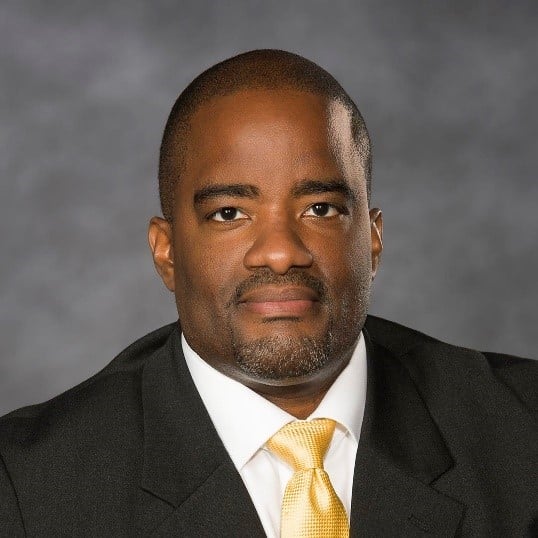 The VCU School of Education wishes to express our solidarity with the recent anti-racist protests and efforts to eradicate structural and systemic racism that began after the brutal murder of George Floyd in Minneapolis by police officers. His murder is not just a recent upsetting event, as so many other incidents come to mind: Amy Cooper in New York calling the police with false allegations regarding a black man; Ahmad Aubrey who was shot to death by Gregory and Travis McMichael; Breonna Taylor who was killed by police raiding her home; Eric Garner, and on and on and on. These incidents, and many more, are part of a pattern of ongoing, systemic, racist behavior against black people in this country since the beginning of slavery. Additionally, efforts to eradicate structural and systemic racism must continue. The grief that people of color are experiencing goes well beyond these recent events but is historical grief, exacerbated by these events.
The VCU School of Education wishes to express our solidarity with the recent anti-racist protests and efforts to eradicate structural and systemic racism that began after the brutal murder of George Floyd in Minneapolis by police officers. His murder is not just a recent upsetting event, as so many other incidents come to mind: Amy Cooper in New York calling the police with false allegations regarding a black man; Ahmad Aubrey who was shot to death by Gregory and Travis McMichael; Breonna Taylor who was killed by police raiding her home; Eric Garner, and on and on and on. These incidents, and many more, are part of a pattern of ongoing, systemic, racist behavior against black people in this country since the beginning of slavery. Additionally, efforts to eradicate structural and systemic racism must continue. The grief that people of color are experiencing goes well beyond these recent events but is historical grief, exacerbated by these events.
We will support this movement with not just words, but actions.
18 Jun2020
By Nakisha Whittington
This article originally appeared in the AACTE Holmes Bulletin e-newsletter.
Graduate students all across the nation are adjusting to new academic schedules and research timelines as a result of the impact of coronavirus (COVID-19). Students have contemplated many questions about how to be productive, and how to recharge and refocus their energy as they continue to pursue their academic goals. Below are some tips to help our Holmes students cope during this crisis.
Weekly Check-Ins: Checking in on family and friends is always a good idea. However, instead of asking general questions like “How are you today?”, ask specific and detailed questions that will offer support or solutions. For example, “Are there any tasks this week that I can help you with?” Counselor education students at University of Central Florida have been hosting weekly check-ins with other first-year Holmes students in an effort to build strong communities of practice during the pandemic.
18 Jun2020
By Azaria Cunningham
 Congratulations to Shanett Dean, Holmes Scholar of the Month for June 2020. Dean is currently pursuing a Ph.D. in curriculum and instruction at Florida Atlantic University (FAU). Her research interests include the school-to-prison pipeline, critical pedagogy, technology integration, and critical literacy. She earned a B.A. in English literature from the University of South Florida and an M.A. from New York University. Dean has 10 years of experience as a literature, philosophy, and research instructor, and has facilitated professional development sessions on the implementation and implications of technology in secondary classrooms.
Congratulations to Shanett Dean, Holmes Scholar of the Month for June 2020. Dean is currently pursuing a Ph.D. in curriculum and instruction at Florida Atlantic University (FAU). Her research interests include the school-to-prison pipeline, critical pedagogy, technology integration, and critical literacy. She earned a B.A. in English literature from the University of South Florida and an M.A. from New York University. Dean has 10 years of experience as a literature, philosophy, and research instructor, and has facilitated professional development sessions on the implementation and implications of technology in secondary classrooms.
As a Holmes Scholar, Dean has presented her research at several national conferences, including the Association for the Study of African American Life and History. She is also the recipient of many awards and recognitions, including the FAU’s Provost Fellowship, the Broward Education Foundation Teacher Grant for her work on micro-narratives and project-based learning, and the Super Teacher Award received in March 2019 for her creative and fun learning techniques in the IB Literature class that she teaches at Boyd Anderson High School in South Florida. Dean has also created a website for her students, which can be found at deanintheory.com.
18 Jun2020
By Liz Kolb
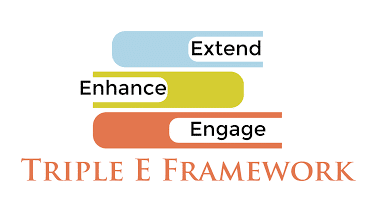 While some of our most vulnerable learners are left behind due to lack of computers or internet connectivity, and we need to strive for policies to end the digital divide, the COVID-19 pandemic also has revealed the long-term staying power of teaching and learning in both brick-and-mortar and distance learning environments.
While some of our most vulnerable learners are left behind due to lack of computers or internet connectivity, and we need to strive for policies to end the digital divide, the COVID-19 pandemic also has revealed the long-term staying power of teaching and learning in both brick-and-mortar and distance learning environments.
As a teacher educator preparing new and veteran teachers to use technology in learning, I know the magic sauce of technology integration is not found in the tool itself, rather the instructional strategies that teachers use in conjunction with the tool.
In order to prepare new teachers to integrate technology to support blended learning, I show teachers how to use the Triple E Framework to evaluate how well a lesson is integrating technology using research-informed approaches. The Triple E Framework is a validated research-informed tool to assess how effectively the technology and the instructional strategies around the technology is helping to engage students in the learning goals, enhance students’ understanding of the learning goals, and extend students’ everyday connection to the learning goals. The Triple E Framework encourages teachers to ask three questions related to each E (engagement, enhancement, and extension) when designing or evaluating lessons with technology. As the teacher answers each question, a score is given, with each question receiving a score between 0 and 2. Ultimately the teachers’ lesson ends up with a total score in a range from 0 to 18. The closer the score is to 18, the better connected the technology choices, instructional strategies, and learning goals are observed in a lesson. When a lesson has a score less than 13, teachers are encouraged to 1) reconsider the tool choice, and/or 2) consider adding research-based instructional strategies around the tool to help boost the score, thus making the technology tools and strategies around the tool better connected to the learning outcomes.
18 Jun2020
By Meghan Grenda

In light of the pandemic, it is now more important than ever to lean into your networks and communities. As a member of AACTE, you can connect with peers, learn from their experiences, and participate in ongoing conversations about educator preparation. In addition to the many benefits of an AACTE membership, below are a few new member resources to assist you and your organization during these uncertain times:
- COVID-19 Resource Hub – Learn how peers are transitioning to distance learning, participate in webinars, and access the latest research about online and virtual instruction.
- COVID-19 Educator Preparation Policy Tracker Map – This interactive map details state policy changes related to licensure and certification, clinical experience, hiring, and state standards and program requirements. It also provides state guidance to EPPs on how to adjust to programmatic changes resulting from COVID-19.
- Mursion Virtual Reality Classrooms – AACTE members receive special rates to Mursion Virtual Reality Classrooms. These classrooms provide virtual simulations so your teacher candidates can still complete clinical practice requirements during the pandemic.
Renewal Incentives
Your AACTE membership is active through December 31, 2020. However, we encourage you to renew for 2021 today. AACTE understands that many of our members are currently facing operational challenges, and as such, we are offering several renewal incentives.
16 Jun2020
By Jane E. West
 This blog post is written by AACTE consultant Jane West and is intended to provide updated information. The views expressed in this post do not necessarily reflect the views of AACTE.
This blog post is written by AACTE consultant Jane West and is intended to provide updated information. The views expressed in this post do not necessarily reflect the views of AACTE.
Police Reform in the Wake of George Floyd’s Death: Is it Coming? How Will it Affect Schools?
The purview of state and local government police reform is rapidly moving into the realm of the federal government. House Democrats have acted quickly, introducing a sweeping bill, the Justice in Policing Act of 2020 with 200 sponsors. Republicans in both the House and Senate are feeling the pressure and discussions are underway, albeit for a far more limited approach. The White House is sending mixed messages, on the one hand calling for reform and on the other, calling for law and order.
Sen. Tim Scott (R-SC) is taking the lead for Republicans in the Senate and has been in conversation with the White House. Rep. Jim Jordan (R-OH), a top Trump ally in the House, said he will release his own plan shortly. Senate proposals appear to feature the improvement of federal data collection on the use of force and no-knock warrants as well as police training. White House spokespersons said that ending qualified immunity, which protects police officers from civil lawsuits, was a nonstarter.
16 Jun2020
By Lynn M. Gangone
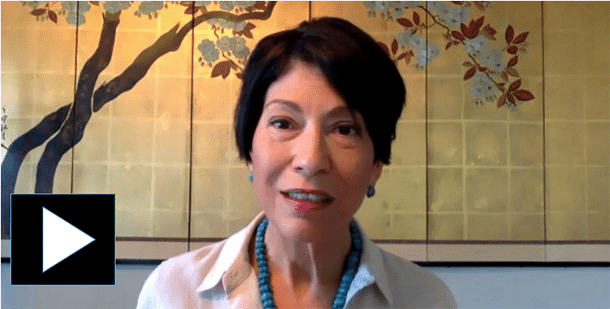
We are indeed living in profound times. Educators face extraordinary challenges navigating not only the global health crisis, but also the racial and systemic injustices occurring within our country. AACTE and its Board of Directors are taking bold actions to augment our leading role during this time of change. Please take a few minutes to watch the video above and learn more.
Educators must remain committed to teaching and modeling social responsibility now more than ever before. Stay connected with AACTE for the latest resources, tools, and information to address the issues facing our profession today. Visit aacte.org to access these benefits and renew your AACTE membership.
15 Jun2020
By Katrina Norfleet
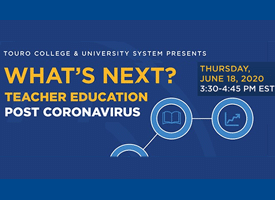 To address this trying time for education in general, and teacher education specifically, the Graduate School of Education at AACTE member institution Touro College will present a virtual discussion with leaders in the profession as they contemplate what comes after sheltering in place for teacher preparation.
To address this trying time for education in general, and teacher education specifically, the Graduate School of Education at AACTE member institution Touro College will present a virtual discussion with leaders in the profession as they contemplate what comes after sheltering in place for teacher preparation.
AACTE Board member Jacob Easley II, dean of the Touro College’s Graduate School of Education, will moderate the session. Panelists include Judy Beck, president of the Association of Teacher Educators and dean of the School of Education, University of South Carolina; past AACTE Board Chair Wanda Blanche J. Blanchett, Graduate School of Education
Wanda J. Blanchett, former AACTE board chair, Graduate School of Education, Rutgers University; and Rene Antrop-Gonzales, incoming dean and professor, School of Education, SUNY New Paltz.
RSVP to join the webinar, “What’s Next? Teacher Education Post Coronavirus,” on Thursday, June 18, 3:30-4:45 p.m. EST.
15 Jun2020
By Linda Darling-Hammond and Janel George

This article originally appeared on the Learning Policy Institute Blog and is reprinted with permission.
The protests now enveloping our nation are, in one sense, long overdue. The recent police killings of George Floyd, Breonna Taylor, and Tony McDade are not isolated incidents: Every year in the United States, more than 1,000 civilians are killed by police, and Black people are disproportionately harmed. These murders and the lack of justice that has routinely accompanied them are, in turn, part of a pattern of institutionalized racism that limits the opportunities of African Americans and other people of color in every aspect of society: employment, housing, health care, and, yes, education.
12 Jun2020
By Bryan Zugelder
 I am currently seeking contributing authors for a book with IGI Global, for release in 2021, titled Empowering Formal and Informal Leadership While Maintaining Teacher Identity. This publication will add to the body of scholarship on teacher leadership and further help to define the opportunities and challenges for school districts to consider to promote teacher leadership in their settings. The edited book will provide a wide and broad perspective of the topic which can be used in university settings and practitioner settings related to teacher education and teacher development.
I am currently seeking contributing authors for a book with IGI Global, for release in 2021, titled Empowering Formal and Informal Leadership While Maintaining Teacher Identity. This publication will add to the body of scholarship on teacher leadership and further help to define the opportunities and challenges for school districts to consider to promote teacher leadership in their settings. The edited book will provide a wide and broad perspective of the topic which can be used in university settings and practitioner settings related to teacher education and teacher development.
Education researchers and practitioners are invited to submit a 1,000 to 2,000 word chapter proposal by July 9, 2020.
12 Jun2020
By Marni Kay, Stephanie Luke and Shane Trenta

The past several months have gone by in a blur for the world as rushed plans were created in response to the Coronavirus pandemic. There were many questions that surrounded education. How would we transition to an online learning platform? How would we ensure all students had equal access to devices and the internet? How would we reach students’ social-emotional needs?
Another challenge facing school districts was how to best support teachers. The short turnaround time that brick and mortar districts had to transition into online schools was a daunting task! How would professional development be facilitated? How would the delivery be and when/how would they require teachers to complete the training?
 AACTE celebrates Juneteeth in honor of African American history and closed the National Office today. On June 19, 1865, the emancipation of Black slaves was realized when Union troops arrived in Galveston Bay, Texas, to enforce the 1863 Emancipation Proclamation for these citizens. The newly freed people called this day “Juneteeth.” Prior to this time, Confederate-controlled states refused to free slaves so an executive decree was issued and enacted by Union military.
AACTE celebrates Juneteeth in honor of African American history and closed the National Office today. On June 19, 1865, the emancipation of Black slaves was realized when Union troops arrived in Galveston Bay, Texas, to enforce the 1863 Emancipation Proclamation for these citizens. The newly freed people called this day “Juneteeth.” Prior to this time, Confederate-controlled states refused to free slaves so an executive decree was issued and enacted by Union military.

 The effects of COVID-19 on students and families require district leaders to collaborate with local stakeholders — including administrators, classroom teachers, school support staff, parents, and students — to plan strategic actions that allow digital learning to effectively and equitably continue into the summer and beyond.
The effects of COVID-19 on students and families require district leaders to collaborate with local stakeholders — including administrators, classroom teachers, school support staff, parents, and students — to plan strategic actions that allow digital learning to effectively and equitably continue into the summer and beyond.  The Executive Board of NCACTE grieves with the nation and joins in solidarity with our black brothers and sisters during this tragic period in our nation’s history. Systemic racism stole the lives of George Floyd, Rayshard Brooks, Ahmaud Arbery, Breonna Taylor, Eric Garner, Trayvon Martin, Michael Brown, and many more that are not named here. As teacher educators, we believe Black Lives Matter and we see the impact of racism in both our K-12 schools, colleges and universities. As a body, we agree students in our schools need and deserve antiracist teachers as well as teachers who are mirrors for themselves. This statement is our initial commitment to action, which will begin months and years of work ahead. We are also committed to finding the right people to lead this work for and with us.
The Executive Board of NCACTE grieves with the nation and joins in solidarity with our black brothers and sisters during this tragic period in our nation’s history. Systemic racism stole the lives of George Floyd, Rayshard Brooks, Ahmaud Arbery, Breonna Taylor, Eric Garner, Trayvon Martin, Michael Brown, and many more that are not named here. As teacher educators, we believe Black Lives Matter and we see the impact of racism in both our K-12 schools, colleges and universities. As a body, we agree students in our schools need and deserve antiracist teachers as well as teachers who are mirrors for themselves. This statement is our initial commitment to action, which will begin months and years of work ahead. We are also committed to finding the right people to lead this work for and with us.  The VCU School of Education wishes to express our solidarity with the recent anti-racist protests and efforts to eradicate structural and systemic racism that began after the brutal murder of George Floyd in Minneapolis by police officers. His murder is not just a recent upsetting event, as so many other incidents come to mind: Amy Cooper in New York calling the police with false allegations regarding a black man; Ahmad Aubrey who was shot to death by Gregory and Travis McMichael; Breonna Taylor who was killed by police raiding her home; Eric Garner, and on and on and on. These incidents, and many more, are part of a pattern of ongoing, systemic, racist behavior against black people in this country since the beginning of slavery. Additionally, efforts to eradicate structural and systemic racism must continue. The grief that people of color are experiencing goes well beyond these recent events but is historical grief, exacerbated by these events.
The VCU School of Education wishes to express our solidarity with the recent anti-racist protests and efforts to eradicate structural and systemic racism that began after the brutal murder of George Floyd in Minneapolis by police officers. His murder is not just a recent upsetting event, as so many other incidents come to mind: Amy Cooper in New York calling the police with false allegations regarding a black man; Ahmad Aubrey who was shot to death by Gregory and Travis McMichael; Breonna Taylor who was killed by police raiding her home; Eric Garner, and on and on and on. These incidents, and many more, are part of a pattern of ongoing, systemic, racist behavior against black people in this country since the beginning of slavery. Additionally, efforts to eradicate structural and systemic racism must continue. The grief that people of color are experiencing goes well beyond these recent events but is historical grief, exacerbated by these events. Congratulations to Shanett Dean, Holmes Scholar of the Month for June 2020. Dean is currently pursuing a Ph.D. in curriculum and instruction at Florida Atlantic University (FAU). Her research interests include the school-to-prison pipeline, critical pedagogy, technology integration, and critical literacy. She earned a B.A. in English literature from the University of South Florida and an M.A. from New York University. Dean has 10 years of experience as a literature, philosophy, and research instructor, and has facilitated professional development sessions on the implementation and implications of technology in secondary classrooms.
Congratulations to Shanett Dean, Holmes Scholar of the Month for June 2020. Dean is currently pursuing a Ph.D. in curriculum and instruction at Florida Atlantic University (FAU). Her research interests include the school-to-prison pipeline, critical pedagogy, technology integration, and critical literacy. She earned a B.A. in English literature from the University of South Florida and an M.A. from New York University. Dean has 10 years of experience as a literature, philosophy, and research instructor, and has facilitated professional development sessions on the implementation and implications of technology in secondary classrooms. 

 This blog post is written by AACTE consultant Jane West and is intended to provide updated information. The views expressed in this post do not necessarily reflect the views of AACTE.
This blog post is written by AACTE consultant Jane West and is intended to provide updated information. The views expressed in this post do not necessarily reflect the views of AACTE.
 To address this trying time for education in general, and teacher education specifically, the Graduate School of Education at AACTE member institution Touro College will present a virtual discussion with leaders in the profession as they contemplate what comes after sheltering in place for teacher preparation.
To address this trying time for education in general, and teacher education specifically, the Graduate School of Education at AACTE member institution Touro College will present a virtual discussion with leaders in the profession as they contemplate what comes after sheltering in place for teacher preparation.
 I am currently seeking contributing authors for a book with IGI Global, for release in 2021, titled Empowering Formal and Informal Leadership While Maintaining Teacher Identity. This publication will add to the body of scholarship on teacher leadership and further help to define the opportunities and challenges for school districts to consider to promote teacher leadership in their settings. The edited book will provide a wide and broad perspective of the topic which can be used in university settings and practitioner settings related to teacher education and teacher development.
I am currently seeking contributing authors for a book with IGI Global, for release in 2021, titled Empowering Formal and Informal Leadership While Maintaining Teacher Identity. This publication will add to the body of scholarship on teacher leadership and further help to define the opportunities and challenges for school districts to consider to promote teacher leadership in their settings. The edited book will provide a wide and broad perspective of the topic which can be used in university settings and practitioner settings related to teacher education and teacher development.